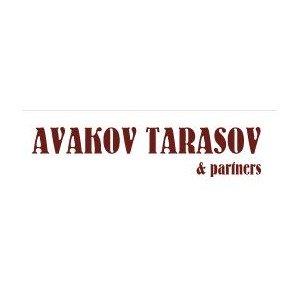Best Citizenship Lawyers in Russia
Share your needs with us, get contacted by law firms.
Free. Takes 2 min.
Or refine your search by selecting a city:
List of the best lawyers in Russia
About Citizenship Law in Russia
Citizenship law in Russia is governed by the Russian Constitution and other federal laws. Russian citizenship can be acquired by birth, through naturalization, or by re-acquiring Russian citizenship. The processes to obtain citizenship can be complex, requiring an understanding of specific legal requirements and documentation. The Federal Law on Citizenship of the Russian Federation, which came into force on 1 July 2002, primarily regulates the acquisition, termination, and restoration of Russian citizenship.
Why You May Need a Lawyer
Legal assistance is often necessary when dealing with matters of citizenship due to the complex nature of laws and regulations. Here are some common situations where engaging a lawyer might be beneficial:
- Applying for citizenship through naturalization or descent.
- Understanding residency requirements and eligibility for citizenship.
- Navigating dual citizenship issues and the associated legal implications.
- Handling revocation or loss of citizenship cases.
- Dealing with immigration issues that may impact your citizenship status.
- Resolving issues related to children born to foreign parents in Russia.
- Addressing concerns related to political asylum or refugee status.
Local Laws Overview
Key aspects of Russian citizenship laws include:
- Citizenship by Birth: Automatic citizenship given to children born to at least one Russian parent or born on Russian territory under specific conditions.
- Naturalization: Requires residency, language proficiency, legal income, and renunciation of previous citizenship in most cases.
- Dual Citizenship: Russia allows dual citizenship, but citizens must inform the government about any other citizenship.
- Restoration: Former Russian citizens who lost their citizenship can apply for restoration under certain conditions.
- Special Programs: Simplified processes for ethnic Russians and participants in certain government programs.
- Military Service: Male citizens between ages 18 and 27 are subject to obligatory military service, unless exempted or deferred.
Frequently Asked Questions
What are the primary paths to acquiring Russian citizenship?
Russian citizenship can be acquired by birth, naturalization, or restoration for former citizens.
Can I hold dual citizenship as a Russian citizen?
Yes, Russia allows dual citizenship but requires notification to Russian authorities about acquiring other citizenships.
What are the requirements for citizenship through naturalization?
Requirements include legal residence of usually five years, knowledge of the Russian language, financial stability, and renunciation of other citizenships in most cases.
How does having a Russian parent impact my citizenship status?
Children born to at least one Russian parent generally have the right to obtain Russian citizenship.
Is there a way to expedite the citizenship process?
Yes, certain categories such as ethnic Russians and participants in government programs may have expedited processes.
What are the obligations of a Russian citizen?
Obligations include paying taxes, obeying laws, and for males aged 18-27, completing military service unless exempt.
How can I lose Russian citizenship?
Citizenship can be voluntarily renounced or revoked under circumstances such as acquiring citizenship through fraudulent means.
Can children born in Russia to foreign parents get Russian citizenship?
Children born in Russia to foreign parents are not automatically granted Russian citizenship unless specific criteria are met.
What happens if I fail to report my dual citizenship?
Failure to report dual citizenship may lead to fines or other legal consequences.
How can I restore my Russian citizenship?
Former citizens can apply for restoration of citizenship, usually requiring former residency and language skills.
Additional Resources
Those seeking guidance may find the following resources helpful:
- Federal Migration Service of Russia
- Ministry of Internal Affairs of the Russian Federation
- Russian Consulates and Embassies
- Various NGOs working with immigrants and refugees
- Legal aid organizations providing pro bono services
Next Steps
If you require legal assistance with Russian citizenship, consider the following steps:
- Consult with an immigration lawyer to discuss your specific situation and potential legal strategies.
- Gather all necessary documentation including proofs of residency, identity, and any prior immigration records.
- Visit the local Federal Migration Service office to obtain official forms and guides.
- Contact organizations that specialize in immigration law for advice and support.
- Keep informed about legal changes that might affect citizenship requirements or processes.
Lawzana helps you find the best lawyers and law firms in Russia through a curated and pre-screened list of qualified legal professionals. Our platform offers rankings and detailed profiles of attorneys and law firms, allowing you to compare based on practice areas, including Citizenship, experience, and client feedback.
Each profile includes a description of the firm's areas of practice, client reviews, team members and partners, year of establishment, spoken languages, office locations, contact information, social media presence, and any published articles or resources. Most firms on our platform speak English and are experienced in both local and international legal matters.
Get a quote from top-rated law firms in Russia — quickly, securely, and without unnecessary hassle.
Disclaimer:
The information provided on this page is for general informational purposes only and does not constitute legal advice. While we strive to ensure the accuracy and relevance of the content, legal information may change over time, and interpretations of the law can vary. You should always consult with a qualified legal professional for advice specific to your situation.
We disclaim all liability for actions taken or not taken based on the content of this page. If you believe any information is incorrect or outdated, please contact us, and we will review and update it where appropriate.
Browse citizenship law firms by city in Russia
Refine your search by selecting a city.

















